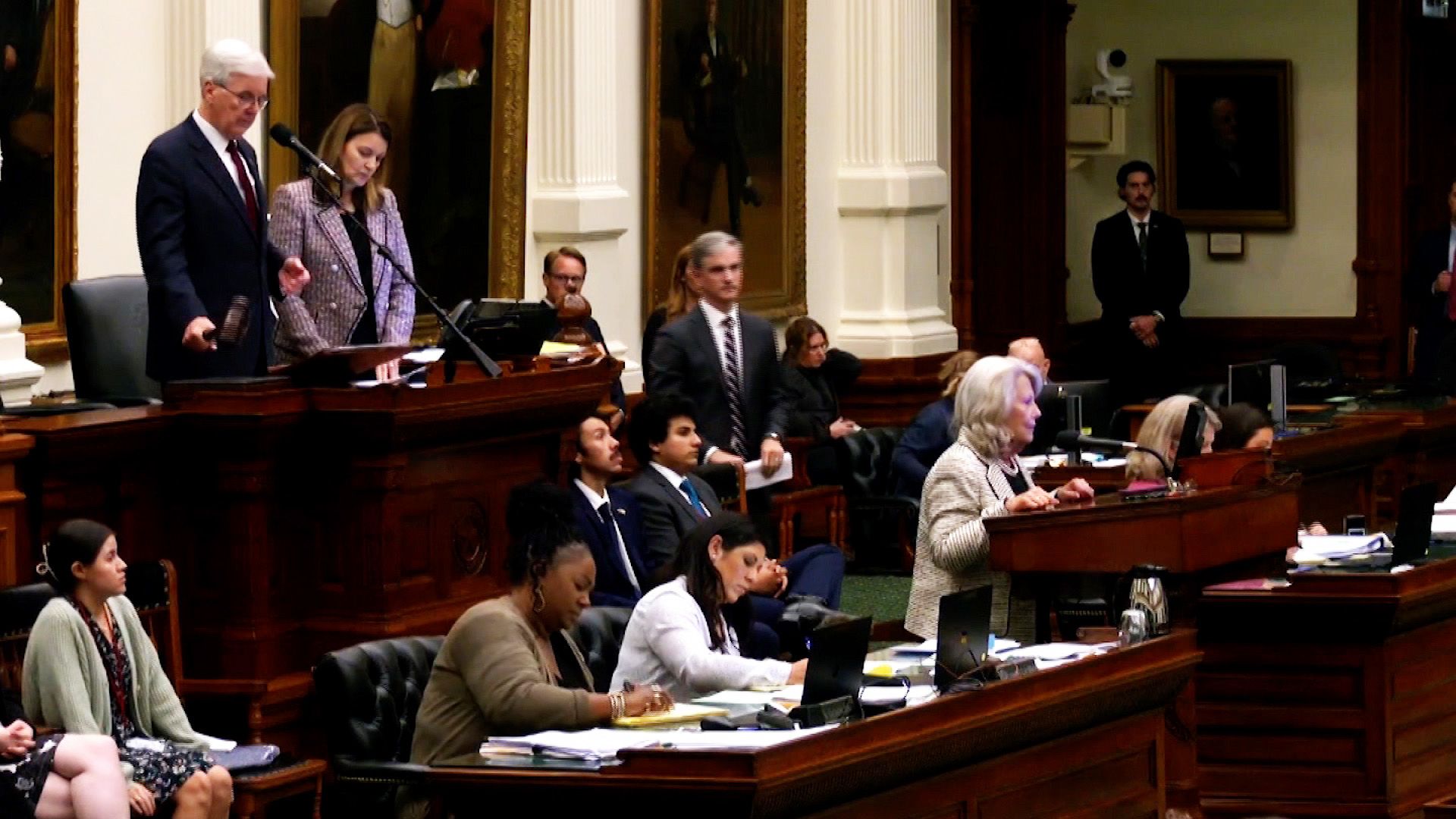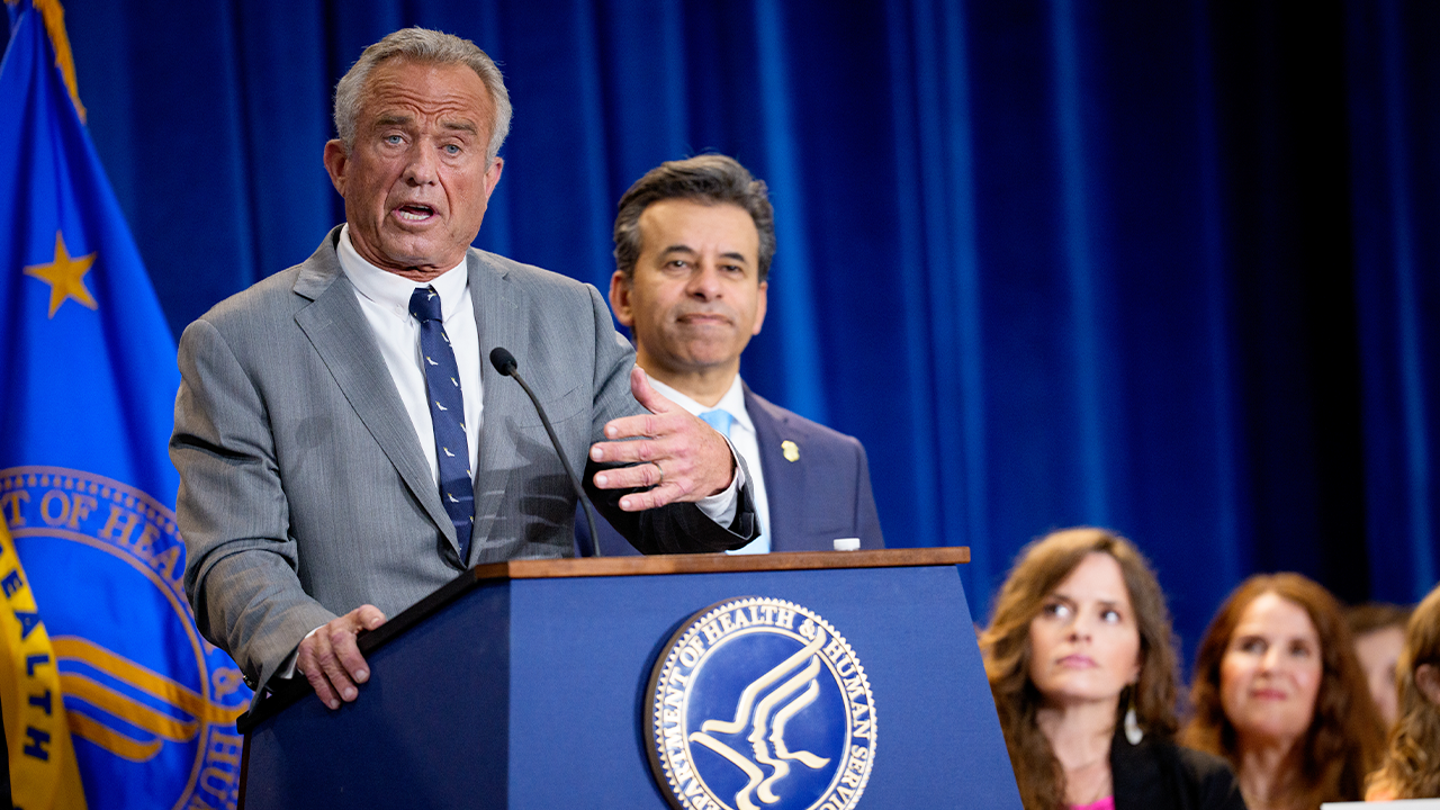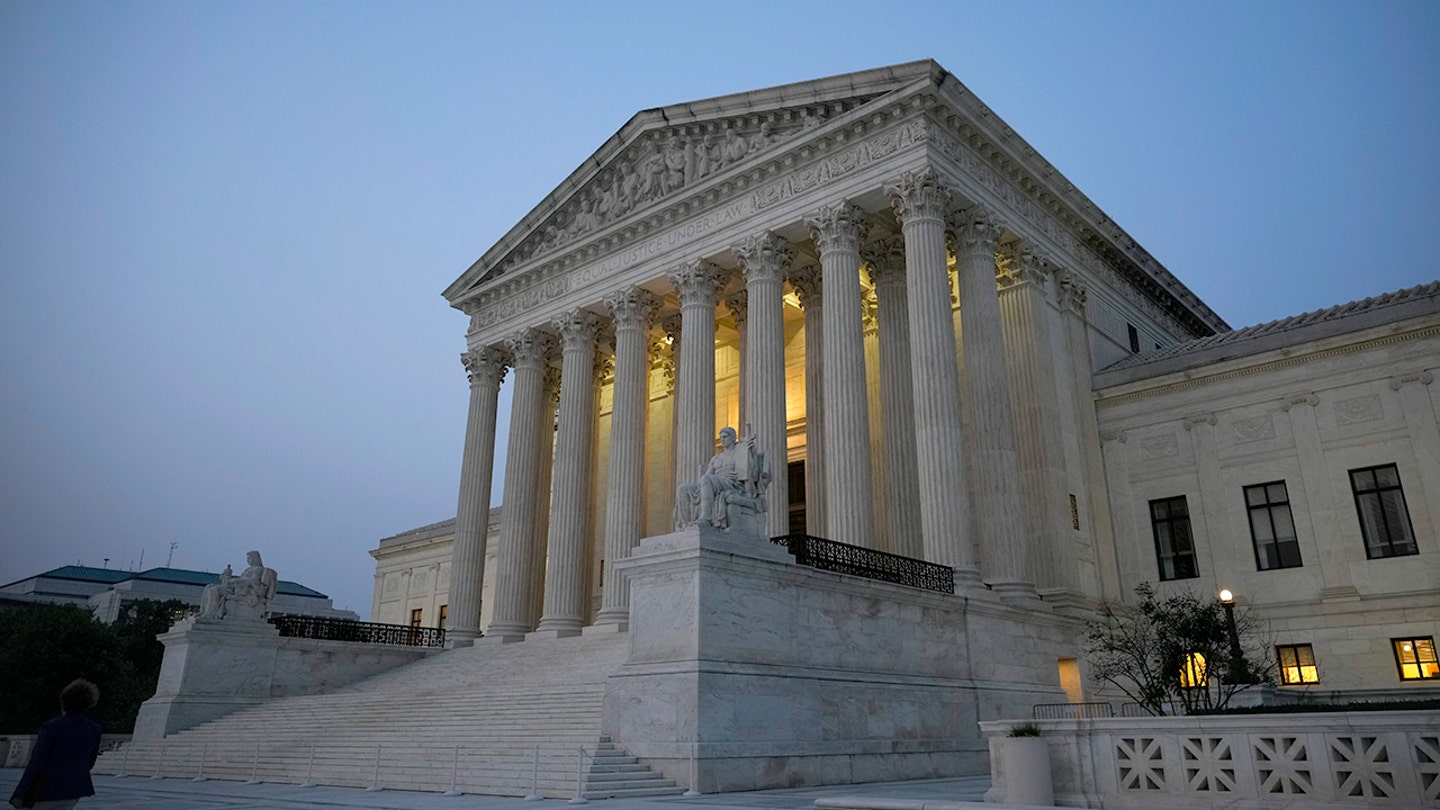
FBI conducts search at Trump critic John Bolton’s home and office as part of resumed national security investigation
Entities mentioned:
- John Bolton: Self-preservation, Professional pride, Righteousness
- Donald Trump: Power, Control, Revenge
- FBI: Duty, Justice, Control
- Justice Department: Justice, Duty, Control
- JD Vance: Loyalty, Duty, Influence
- Kash Patel: Power, Loyalty, Control
Article Assessment:
Credibility Score: 65/100
Bias Rating: 55/100 (Center)
Sentiment Score: 30/100
Authoritarianism Risk: 65/100 (Authoritarian Tendencies)
Bias Analysis:
The article presents multiple perspectives and cites various sources, including both Trump administration officials and critics. However, there's a slight lean towards framing the event as potentially politically motivated, which may reflect a centrist to slightly left-leaning bias.
Key metric: Rule of Law Index
As a social scientist, I analyze that this article highlights a concerning trend of potential politicization of law enforcement agencies. The renewed investigation into John Bolton, a vocal critic of President Trump, raises questions about the use of government power against political opponents. This action could significantly impact the Rule of Law Index, particularly in areas of constraints on government powers and absence of corruption. The public nature of the search and the social media activity of top FBI officials further suggest a departure from standard investigative practices, potentially eroding public trust in law enforcement institutions. The timing and context of this investigation, following Bolton's criticism of Trump's foreign policy, particularly regarding Russia and Ukraine, add to concerns about potential abuse of power and selective enforcement of laws.

Trump again gives Putin ‘a couple of weeks’ with no sign of Ukraine peace talks underway
Entities mentioned:
- Donald Trump: Power, Control, Influence
- Vladimir Putin: Power, Control, Self-preservation
- Volodymyr Zelensky: Self-preservation, Justice, Unity
- Sergey Lavrov: Loyalty, Duty, Control
Article Assessment:
Credibility Score: 75/100
Bias Rating: 45/100 (Center)
Sentiment Score: 35/100
Authoritarianism Risk: 55/100 (Mixed/Neutral)
Bias Analysis:
The article presents a relatively balanced view, quoting Trump directly and providing context. While it doesn't overtly criticize Trump's approach, it subtly highlights the lack of progress and uncertainty in his diplomatic efforts.
Key metric: International Relations and Diplomacy
As a social scientist, I analyze that this article highlights the complex dynamics of international diplomacy, particularly in the context of the Russia-Ukraine conflict. Trump's approach of setting deadlines and attempting to broker meetings between Putin and Zelensky demonstrates an unconventional diplomatic strategy. The repeated extension of deadlines and vague threats of consequences suggest a lack of concrete policy or leverage. This approach may impact US credibility in international relations, potentially weakening its position as a global mediator. The article also reveals the challenges of multilateral negotiations, with Russia showing reluctance to engage in the proposed talks. Trump's personal relationship with Putin, as evidenced by the photo exchange, raises questions about the influence of personal dynamics on diplomatic efforts. The overall impact on international relations metrics appears to be negative, as it showcases uncertainty in US foreign policy and a potential shift in global power dynamics.

Texas nears final vote on new congressional maps as partisan redistricting race escalates
Entities mentioned:
- Texas Senate: Power, Control, Loyalty
- Texas Republicans: Ambition, Competitive spirit, Power
- Carol Alvarado: Determination, Justice, Moral outrage
- Donald Trump: Power, Influence, Control
- Greg Abbott: Power, Control, Loyalty
- California Democrats: Competitive spirit, Power, Justice
- Gavin Newsom: Ambition, Competitive spirit, Justice
- White House: Power, Control, Influence
- Kathy Hochul: Competitive spirit, Power, Justice
- Todd Hunter: Loyalty, Power, Competitive spirit
- Catherine Blakespear: Justice, Moral outrage, Competitive spirit
- Dustin Burrows: Control, Power, Loyalty
- Nicole Collier: Determination, Justice, Moral outrage
- Gene Wu: Justice, Determination, Moral outrage
- Lloyd Doggett: Self-preservation, Professional pride, Duty
- Charlie Geren: Control, Power, Loyalty
Article Assessment:
Credibility Score: 75/100
Bias Rating: 55/100 (Center)
Sentiment Score: 35/100
Authoritarianism Risk: 65/100 (Authoritarian Tendencies)
Bias Analysis:
The article presents perspectives from both Republican and Democratic sides, quoting various politicians and explaining their actions. While it leans slightly towards criticizing Republican efforts, it also details Democratic counter-measures, maintaining a relatively balanced approach.
Key metric: Congressional Seat Distribution
As a social scientist, I analyze that this article highlights the intensifying partisan struggle over redistricting in the United States, particularly in Texas and California. The actions taken by both Republican and Democratic-led state legislatures demonstrate a clear attempt to manipulate congressional districts to gain political advantage. This process, often referred to as gerrymandering, has significant implications for the balance of power in the U.S. House of Representatives. The unusual mid-decade redistricting efforts in Texas and California's response indicate an escalation in the use of this tactic, potentially setting a precedent for other states to follow. This could lead to increased political polarization, reduced electoral competitiveness, and a disconnect between the popular vote and seat distribution in Congress. The legal challenges mentioned in the article suggest that the judiciary may play a crucial role in determining the final outcome of these redistricting efforts, highlighting the complex interplay between state legislatures, voters, and the court system in shaping American democracy.

Inside the Trump team’s debate on what to release from the Epstein files
Entities mentioned:
- Trump administration: Control, Self-preservation, Influence
- Jeffrey Epstein: Power, Greed, Control
- Todd Blanche: Duty, Professional pride, Justice
- Ghislaine Maxwell: Self-preservation, Loyalty, Influence
- Department of Justice: Duty, Justice, Obligation
- House Oversight Committee: Justice, Duty, Righteousness
- Donald Trump: Control, Self-preservation, Influence
- John Bolton: Revenge, Recognition, Influence
Article Assessment:
Credibility Score: 75/100
Bias Rating: 45/100 (Center)
Sentiment Score: 35/100
Authoritarianism Risk: 40/100 (Generally Democratic)
Bias Analysis:
The article presents multiple perspectives and cites various sources within the administration, suggesting a balanced approach. While it focuses on Trump administration decision-making, it also includes critical viewpoints and mentions potential controversies, maintaining a relatively neutral stance.
Key metric: Public Trust in Government
As a social scientist, I analyze that this article reveals the complex interplay between political strategy, public perception, and the handling of sensitive information in a high-profile case. The Trump administration's deliberations over releasing Epstein-related materials demonstrate a calculated approach to controlling the narrative and managing potential fallout. This strategic maneuvering impacts public trust in government, as it highlights the tension between transparency and potential cover-ups. The administration's focus on 'taking control of the narrative' suggests a prioritization of image management over full disclosure, which could erode public confidence. However, the eventual decision to release some materials, coupled with Trump's call for openness, may partially mitigate this effect. The ongoing involvement of the House Oversight Committee adds a layer of checks and balances, potentially boosting public trust in the process of accountability.

Hegseth fires general whose agency’s intel assessment of damage from Iran strikes angered Trump
Entities mentioned:
- Pete Hegseth: Power, Control, Loyalty
- Donald Trump: Power, Control, Self-preservation
- Jeffrey Kruse: Professional pride, Duty, Integrity
- Nancy Lacore: Duty, Professional pride
- Milton Sands: Duty, Professional pride
- Benjamin Netanyahu: Power, Influence
- Mark Warner: Justice, Duty, Concern
- Jim Himes: Justice, Transparency, Concern
Article Assessment:
Credibility Score: 75/100
Bias Rating: 40/100 (Lean Left)
Sentiment Score: 25/100
Authoritarianism Risk: 70/100 (Authoritarian Tendencies)
Bias Analysis:
The article leans slightly left, evidenced by its critical tone towards the Trump administration's actions and the prominence given to Democratic lawmakers' concerns. However, it does present factual information and includes multiple perspectives.
Key metric: National Security and Intelligence Integrity
As a social scientist, I analyze that this article highlights a concerning trend of politicization within the US intelligence and military leadership. The firing of top officials, particularly those whose assessments contradict the administration's narrative, suggests a prioritization of loyalty over professional expertise and objective analysis. This could lead to a degradation of intelligence quality and military effectiveness, potentially compromising national security. The pattern of dismissals, coupled with budget cuts and organizational changes, indicates a systematic attempt to reshape these institutions to align with political goals rather than maintaining their independent advisory roles. This shift could have long-term implications for the credibility and functionality of US intelligence and defense capabilities.

Trump says Chicago next up for federal crime crackdown
Entities mentioned:
- Donald Trump: Power, Control, Influence
- Muriel Bowser: Self-preservation, Control, Duty
- Brandon Johnson: Self-preservation, Duty, Security
- JB Pritzker: Moral outrage, Duty, Security
- Mike Johnson: Loyalty, Power, Influence
- John Thune: Loyalty, Power, Influence
Article Assessment:
Credibility Score: 65/100
Bias Rating: 55/100 (Center)
Sentiment Score: 30/100
Authoritarianism Risk: 70/100 (Authoritarian Tendencies)
Bias Analysis:
The article presents multiple viewpoints, including Trump's statements and responses from local officials. However, it leans slightly towards skepticism of Trump's claims, particularly in fact-checking crime statistics.
Key metric: Violent Crime Rate
As a social scientist, I analyze that this article highlights a potential shift in federal-local power dynamics regarding law enforcement. Trump's proposed actions in Chicago, following interventions in Washington D.C., suggest an expansion of federal authority over local policing. This approach could significantly impact the violent crime rate, either positively through increased law enforcement presence or negatively by escalating tensions. The conflicting narratives between federal and local officials about crime statistics and the effectiveness of interventions raise questions about data integrity and the actual impact on public safety. The president's rhetoric and actions also indicate a centralization of power that could alter the traditional balance between federal and local governance in law enforcement matters.

Texas Republicans approve new congressional maps as partisan redistricting race escalates
Entities mentioned:
- Texas Republicans: Power, Control, Competitive spirit
- Donald Trump: Power, Influence, Legacy
- Greg Abbott: Power, Loyalty, Control
- Dan Patrick: Loyalty, Power, Influence
- California Democrats: Competitive spirit, Power, Justice
- Gavin Newsom: Power, Competitive spirit, Justice
- Kathy Hochul: Competitive spirit, Power, Influence
- Todd Hunter: Power, Loyalty, Competitive spirit
- Catherine Blakespear: Justice, Competitive spirit, Moral outrage
- Phil King: Power, Loyalty, Competitive spirit
- Texas Democrats: Justice, Moral outrage, Self-preservation
- Dustin Burrows: Control, Power, Determination
- Nicole Collier: Moral outrage, Self-respect, Determination
- Gene Wu: Justice, Determination, Moral outrage
- Carol Alvarado: Justice, Determination, Moral outrage
- Lloyd Doggett: Self-preservation, Professional pride, Duty
- Greg Casar: Self-preservation, Ambition, Professional pride
- Venton Jones: Justice, Moral outrage, Self-respect
- Charlie Geren: Duty, Control, Power
- Robert Rivas: Power, Competitive spirit, Influence
Article Assessment:
Credibility Score: 75/100
Bias Rating: 55/100 (Center)
Sentiment Score: 35/100
Authoritarianism Risk: 65/100 (Authoritarian Tendencies)
Bias Analysis:
The article presents perspectives from both Republican and Democratic actors, providing a relatively balanced view of the redistricting efforts. However, there's slightly more focus on Democratic opposition and legal challenges, which may suggest a slight center-left lean.
Key metric: Electoral Competitiveness
As a social scientist, I analyze that this article highlights a significant escalation in partisan redistricting efforts, with potential far-reaching consequences for electoral competitiveness in the United States. The actions taken by both Texas Republicans and California Democrats represent a departure from normal redistricting processes, occurring mid-decade rather than following the census. This trend towards more frequent and aggressive redistricting could lead to increased polarization, reduced electoral competitiveness, and a weakening of democratic norms. The use of redistricting as a tool for partisan advantage may result in less representative government and diminished voter faith in the electoral system. The involvement of state legislatures in overriding independent commissions (as in California) also raises concerns about the erosion of checks and balances designed to ensure fair representation.

Trump-aligned legal group probes Biden-era organ transplant program over ethical concerns
Entities mentioned:
- America First Legal: Justice, Righteousness, Wariness
- Stephen Miller: Loyalty, Influence, Control
- Department of Health and Human Services: Duty, Professional pride, Security
- Centers for Medicare & Medicaid Services: Duty, Professional pride, Security
- Health Resources and Services Administration: Duty, Professional pride, Security
- Robert F. Kennedy Jr.: Righteousness, Moral outrage, Recognition
- Laura Stell: Justice, Righteousness, Professional pride
- Trump administration: Power, Control, Influence
Article Assessment:
Credibility Score: 70/100
Bias Rating: 65/100 (Lean Right)
Sentiment Score: 35/100
Authoritarianism Risk: 40/100 (Generally Democratic)
Bias Analysis:
The article leans right due to its focus on Trump-aligned groups and their concerns, as well as the 'FIRST ON FOX' label. While it presents some factual information about the organ transplant program, it gives more weight to criticisms from Trump-aligned sources.
Key metric: Healthcare System Effectiveness
As a social scientist, I analyze that this article highlights a conflict between the Biden administration's efforts to improve organ transplant access and concerns raised by Trump-aligned groups about potential ethical issues and outside influences. The investigation by America First Legal into the Increasing Organ Transplant Access Model reflects ongoing political tensions in healthcare policy. This situation could impact the Healthcare System Effectiveness metric by potentially delaying or altering the implementation of a program designed to increase organ transplant access. The controversy may lead to increased scrutiny of healthcare policies, which could either improve transparency and effectiveness or create obstacles to implementing potentially beneficial reforms. The political nature of the investigation also underscores the challenges of implementing major healthcare changes in a polarized environment.

'Maine's Mamdani': Maine GOP chief issues warning about new challenger looking to oust Susan Collins
Entities mentioned:
- Susan Collins: Self-preservation, Loyalty, Influence
- Graham Platner: Ambition, Justice, Influence
- Jason Savage: Competitive spirit, Wariness, Control
- Maine Republican Party: Power, Control, Self-preservation
- Democratic Party: Power, Control, Unity
- Zohran Mamdani: Influence, Justice, Recognition
- Janet Mills: Ambition, Influence, Duty
Article Assessment:
Credibility Score: 65/100
Bias Rating: 75/100 (Lean Right)
Sentiment Score: 35/100
Authoritarianism Risk: 40/100 (Generally Democratic)
Bias Analysis:
The article leans right, primarily quoting Republican sources and framing progressive Democrats negatively. It presents a one-sided view of the political landscape, emphasizing potential threats from left-wing candidates without balanced perspectives.
Key metric: Political Polarization Index
As a social scientist, I analyze that this article highlights the growing ideological divide within the Democratic Party and between Democrats and Republicans. The framing of Graham Platner as 'Maine's Mamdani' suggests an attempt to associate him with more radical left-wing politics, potentially alienating moderate voters. This polarization could impact voter turnout and party unity, ultimately affecting the balance of power in the Senate. The article's focus on ideological extremes and the characterization of progressive policies as 'very unpopular' indicates a potential shift in political discourse towards more polarized positions, which could have long-term effects on bipartisanship and governance.

Trump administration wins Supreme Court fight to slash NIH medical research grants tied to DEI, LGBTQ studies
Entities mentioned:
- Trump administration: Power, Control, Righteousness
- Supreme Court: Duty, Justice, Influence
- National Institutes of Health (NIH): Professional pride, Duty, Obligation
- Judge Angel Kelley: Justice, Duty, Moral outrage
- Justice Department: Duty, Loyalty, Control
- American Public Health Association: Moral outrage, Professional pride, Righteousness
- Democrat-led states: Moral outrage, Justice, Competitive spirit
- Association of American Universities: Professional pride, Wariness, Freedom
Article Assessment:
Credibility Score: 75/100
Bias Rating: 55/100 (Center)
Sentiment Score: 30/100
Authoritarianism Risk: 65/100 (Authoritarian Tendencies)
Bias Analysis:
The article presents multiple viewpoints, including those of the administration, opponents, and neutral parties like news outlets. However, there's slightly more space given to concerns about the cuts, which could suggest a slight lean towards the opposition's perspective.
Key metric: Federal Research Funding
As a social scientist, I analyze that this Supreme Court decision significantly impacts federal research funding, particularly in areas related to diversity, equity, inclusion, and LGBTQ studies. The ruling allows the Trump administration to cut $783 million in NIH grants, which could have far-reaching effects on biomedical research and scientific progress. This decision reflects a broader ideological conflict over the role of DEI initiatives in government-funded research. The potential chilling effect on research into politically sensitive topics could alter the landscape of scientific inquiry in the US, possibly slowing advancements in critical areas like cancer and Alzheimer's research. The split decision (5-4) also highlights the political divisiveness of the issue and the significant role the Supreme Court plays in shaping research priorities and funding allocation.